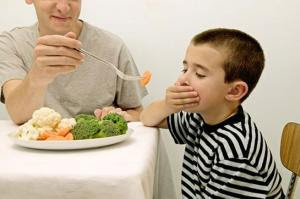What is anorexia nervosa?
People with anorexia can not stop losing weight. Anorexia, you are almost exclusively concerned with food and weight. You stand a few times a day on the scales. And while other people say that you're just too thin. How is that possible? You can perhaps hard to imagine, but you see your body as thicker than it actually is.
The people around you do not understand that you really feel too fat. Why do you keep all your worries about your weight and calories secret. That makes you very lonely. You yourself must comply with various rules and no one knows.
You might get in trouble with your parents or partner, because they think that you eat more. Your body becomes malnourished. And that gives all sorts of additional complaints.
There are two types of anorexia patients: the active type and the binge-type. Are you the active type, you can also do a lot of sport and exercise to lose weight. The binge-type eating too little, but also has binges. After such a binge trying to lose again the food by vomiting or swallowing laxatives.
Many people with anorexia also suffer from depression or depression. The gloom is partly by malnutrition. If you're malnourished, you feel emotions would no longer good.
Anorexia is most common in girls after puberty. But also boys and adult men and women may have anorexia.
Anorexia nervosa is an eating disorder.
Physical symptoms in anorexia nervosa
Anorexia your body is constantly malnourished. And if you have too much sport as you eat too little, your body becomes depleted. These are physical problems with anorexia:
- Your heart beats slower and you have low blood pressure. It helps you feel tired, dizzy and lethargic.
- You often have cold, blue hands and feet.
- You get downy hairs on your face, your arms, your chest and your back.
- Your hair falls out.
- You sleep difficult.
- You can concentrate difficult and you can not remember things well.
- Your menstrual stay away.
- You have less interest in sex.
- You gets clogged.
- You get fluid retention (edema) in your lower legs.
- Your muscles become flabby.
- Your skin dries out and becomes flabby.
- Your stomach shrinks. This means you can eat less and become sick quickly.
Most of these complaints were about when your weight returns to normal. But the eating disorder may also cause damage that is no longer about. If you stay away very long period, you can get osteoporosis and are infertile. Children and young people can reach a growth deficit which is no longer to catch up. Anorexia nervosa can even be deadly.

